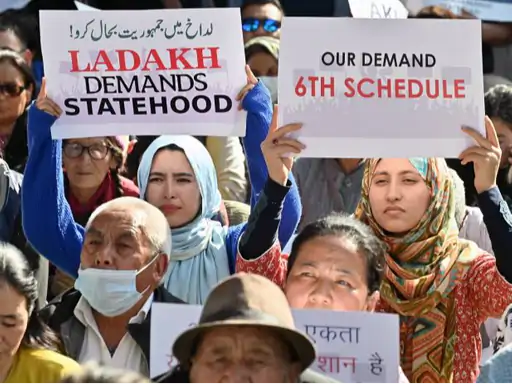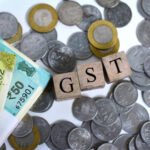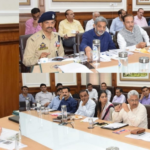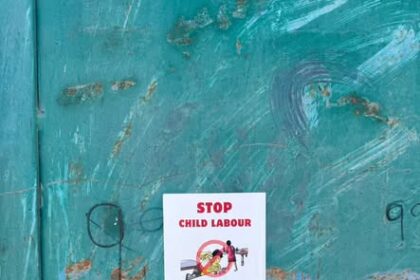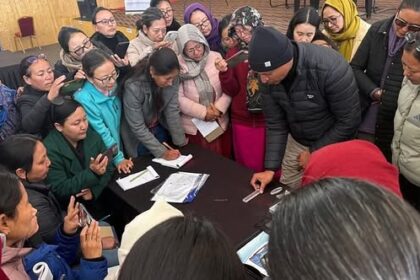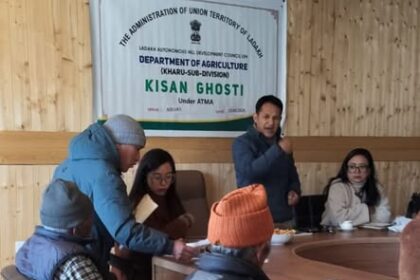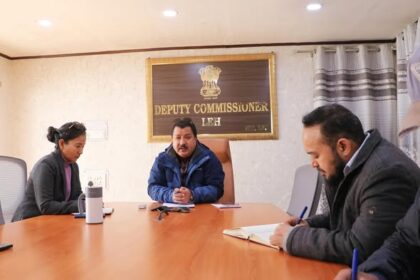Innovator and environmental activist Sonam Wangchuk has ended his 21-day hunger strike, but other demands including granting full statehood to Ladakh have not been met. On the second day after Wangchuk’s resignation, Friday, 70 women sat on hunger strike at the same NDS Memorial Park in Leh, enduring the cold at minus 8 degrees Celsius.
To support them for four days, batches of 400-500 women are also coming. After one batch goes, the other batch sits on hunger strike for the whole day. This process will continue until April 6. After that, the youth will also observe a 10-day hunger strike.
After the women’s hunger strike, on April 7, a border march or Pashmina march will be held near Changthang under the banner of Leh’s top body, LSC, to find out how much land China has encroached upon the Indian pasture. It is expected that 10,000 people will participate in this march.
Norzin Engmo, a retired government employee participating in the hunger strike, told Bhaskar on Friday, “I am on hunger strike to secure the future of my children and grandchildren. We cannot see Ladakh’s fragile environment deteriorating in the name of development.”
Norzin said, “Twenty years ago, the rivers were so clean that we used to drink water directly from them, but today they are highly polluted. We need to protect them.” Peaceful demonstration women are waving the manifestos of the BJP’s 2019 Lok Sabha elections. It promised to include Ladakh in the sixth schedule.
Wangchuk said- PM Modi should fulfill election promises After ending the hunger strike, Sonam Wangchuk had said, “This is not the end of the movement, but a new beginning. Women will observe hunger strike from tomorrow. We will continue to protest until our demands are met.”
Earlier on Tuesday morning, Wangchuk had released a video message. In it, he had appealed to Prime Minister Narendra Modi to fulfill his election promises. Wangchuk had said- PM Modi is a devotee of Lord Rama. He should follow the lesson of ‘even if my life goes, but not my word’ of Lord Rama.
Protests began after the removal of Article 370 On August 5, 2019, the central government abolished Article 370 from Jammu and Kashmir, thereby ending the status of full statehood. After this, Jammu and Kashmir became a separate centrally-administered territory. Combining Leh and Kargil, Ladakh became a separate centrally administered territory.
After this, the people of Leh and Kargil began to feel politically marginalized. They raised their voices against the center. Over the past two years, people have protested several times demanding full statehood and constitutional protection, which gave them land, jobs, and separate identity, which they used to get under Article 370.

